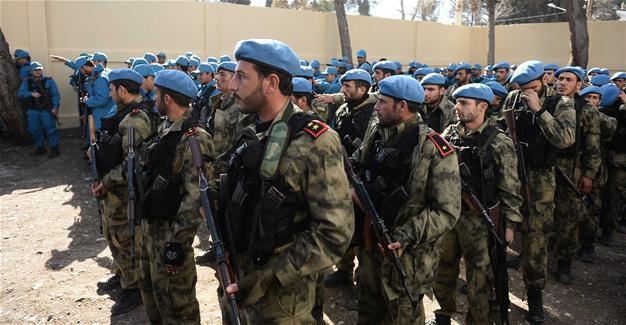Hundreds of police trained by Turkey start work in Syria’s Jarablus
JARABLUS, Syria
 A new Syrian police force trained and equipped by Turkey started work on Jan. 24 in the rebel-held border town of Jarablus, from which Turkey helped drive out Islamic State of Iraq and the Levant (ISIL) militants in recent months.
A new Syrian police force trained and equipped by Turkey started work on Jan. 24 in the rebel-held border town of Jarablus, from which Turkey helped drive out Islamic State of Iraq and the Levant (ISIL) militants in recent months.Casually referred to as the “Free Police,” in reference to the Free Syrian Army (FSA) alliance of moderate rebel groups which Turkey backs in its ongoing Euphrates Shield Operation along the Turkish border with Syria, many of the first 450 recruits are former rebel fighters, Reuters reported.
The new, armed security force is made up of regular police and special forces, who wear distinctive light blue berets. They are Syrians, but received five weeks of training in Turkey. Some wore a Turkish flag patch on their uniforms at the inauguration ceremony on Jan. 24.
“Today is a very important day,” Ali Yerlikaya, governor of Turkey’s southeastern Gaziantep city, said at the ceremony, according to state-run Anadolu Agency.
“With police forces deployed, Jarablus gives hope for a free Syria,” Yerlikaya added.
The forces operate out of a newly opened police station in the Syrian border town of Jarablus but hope to expand into other areas freed from ISIL militants by Turkey-backed rebels in late August just two days after the launch of the Euphrates Shield Operation, officials said.
“The situation in Jarablus will improve day by day thanks to Operation Euphrates Shield,” Yerlikaya said.
He added that the new police force in Jarablus has received five weeks of training at the request of the Free Syrian Army in the southern Turkish city of Mersin.
“[This force] will guarantee the security and stability of Jarabulus,” he said.
“Our mission is to maintain security and preserve property and to serve civilians in the areas liberated [from ISIL],” police force head General Abd al-Razaq Aslan told Reuters.
















